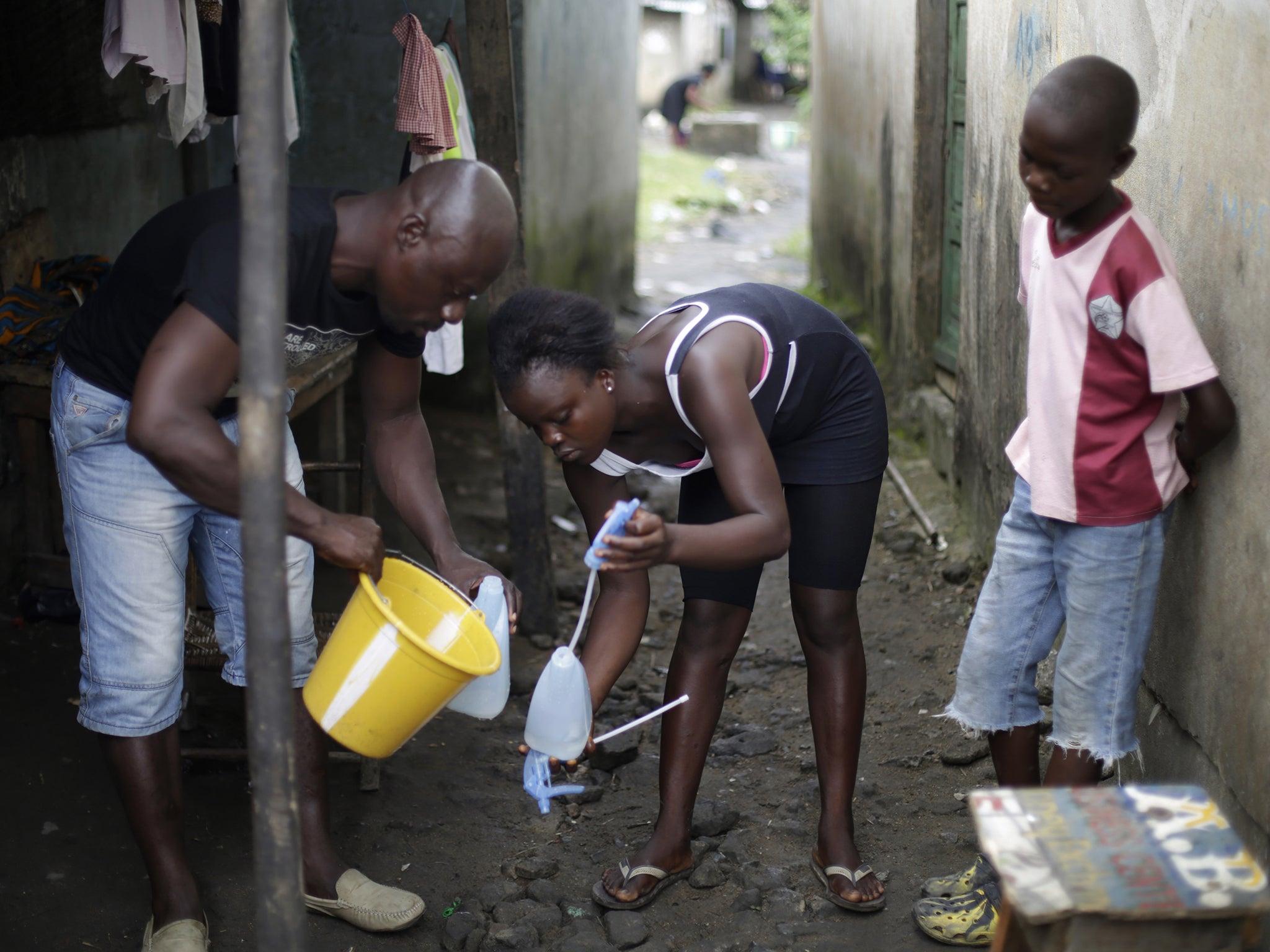Ebola outbreak: How the virus destroyed one Liberian teenager's family
‘Why God does nobody want to come around? We are human beings’

First, 16-year-old Promise Cooper’s mother complained of a hurting head and raging fever. She died days later on the way to the hospital.
The following month, her father developed the same headache and fever. Her baby brother grew listless and sick too, and refused to take a bottle. That’s when Promise knew this was not malaria.
She had heard about Ebola on the radio, like many others. When she tended to her father, she washed her hands immediately after. Desperate to keep her three younger siblings safe, she urged them to play outside their one-room home.
Yet her family of seven disintegrated around her.
In the meantime, neighbours and relatives were becoming suspicious. Word, like the virus, was spreading through Monrovia, Liberia’s capital: the Coopers had Ebola.
In Liberia’s large, deeply religious families, there is usually an aunt somewhere willing to take in a child who has lost a parent. But Ebola, and the fear of contagion and death, is now unravelling bonds that have lasted for generations.
At least 3,700 children across Liberia, Guinea and Sierra Leone have lost one or more parents to Ebola, according to the UN children’s agency. That figure is expected to double within weeks. Many are left to fend for themselves, and continue to live inside infected houses.
Promise was used to looking after her younger siblings, and often carried a baby cousin on her hip around the neighbourhood. When her mother was alive, they would alternate weeks of cooking. She knew how to make porridge for breakfast, rice with potato greens for dinner.
When her father fell sick, she took over all the things her mother used to do. There was no school because of the Ebola epidemic.
But nothing she did could help five-month-old Success. Just like their mother, the little boy died. There was nobody to help them and no ambulance to spare, so his body stayed in the house for several days.
See the Ebola outbreak mapped
Show all 7By the time the ambulance finally came to take away her father and the tiny corpse bundled in blankets, 11-year-old Emmanuel Jr was sick too. Promise watched as medics packed half her family into the back of the ambulance. She was now alone with 15-year-old Benson and 13-year-old Ruth. Promise, overcome with grief and beaten down by stigma, became depressed. “Why don’t you want to talk to me? Why God does nobody want to come around?” she sobbed. “We are human beings.”
Finally, she scraped together enough change from a cousin to take a taxi to the gates of the Ebola clinic. A security guard said he would go to check whether Emmanuel Cooper Sr was on the list of the living. When he came back, he said he was sorry, but their father was dead. The girls broke down.
Even as Promise lost both her parents, another man was trying to document just how many children were orphaned in the St Paul Bridge community. Kanyean Molton Farley, a human rights researcher by day, devoted his spare time to making a list of the now 28 parentless children.
“The story of the Cooper children touched my gut, I never stopped coming back,” he said one day, as he dropped off soap for the children.
The family’s rent was already paid until the end of the year, but they soon ran out of money to pay for electricity. Farley worried that Promise could fall prey to an older man. At 16 and near starving, she was vulnerable to abuse.
Then, Promise saw her brother’s face on television, among government photos of children who had survived Ebola at the city’s clinics but were still separated from their families. “It’s him, it’s him!” she said. And off they went to get Emmanuel, the first in the family to survive this plague.
Not long after Emmanuel’s return, Ruth became feverish and unwell. At first light, an ambulance called by Farley took Ruth to the hospital.
Now it is just Promise and the boys. She insists they will never go live with strangers. Yet they no longer want to stay in the house where their parents lay dying and their brother’s body sat for days.
A few weeks ago, their aunt Helen Kangbo came to visit, the first family member to do so in months. “I have to come back because everyone has abandoned them,” she said.
In their house, there is little trace left of the dead because authorities have burned their parents’ clothing. The only photos of their mother and father are on voter ID cards. And the only reminder of Success is the two bottles of baby powder, still sitting on a table in the room.
AP
Subscribe to Independent Premium to bookmark this article
Want to bookmark your favourite articles and stories to read or reference later? Start your Independent Premium subscription today.

Join our commenting forum
Join thought-provoking conversations, follow other Independent readers and see their replies